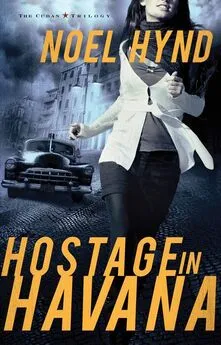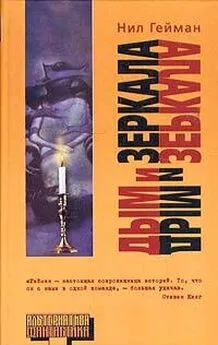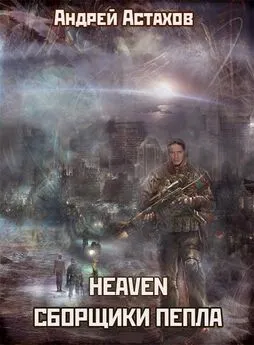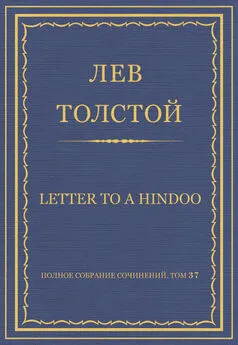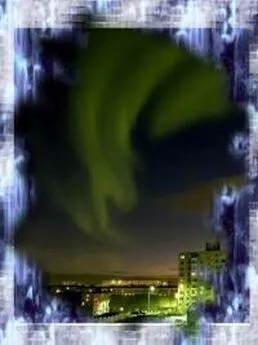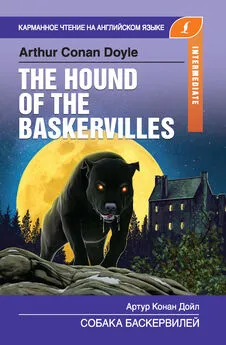Noel Hynd - Hostage in Havana
- Название:Hostage in Havana
- Автор:
- Жанр:
- Издательство:неизвестно
- Год:неизвестен
- ISBN:нет данных
- Рейтинг:
- Избранное:Добавить в избранное
-
Отзывы:
-
Ваша оценка:
Noel Hynd - Hostage in Havana краткое содержание
Hostage in Havana - читать онлайн бесплатно полную версию (весь текст целиком)
Интервал:
Закладка:
They accessed the main road. Traffic was minimal, mostly old cars and slow trucks, an occasional diesel bus spewing smoke. For the next hour the Toyota rambled past small farms and villages. For a long time they rode in silence. Alex glanced at the speedometer and noticed that it barely nudged above forty-five.
Eventually, the road rose onto a plateau. In the distance, to the left and the north, Alex could see the blue sea. The view to the south descended into rolling fields and dark foliage.
From time to time, they scanned the sky. No whirlybird. They were convinced no one was tailing them. Several minutes went by as Alex relaxed and gazed out the window. For a while, she sought to put her assignment and the pressing danger out of her mind and enjoy the view of part of the world she had never seen before.
“Tell me about Robert,” he said.
“Robert?” she asked, turning toward him.
“The man you were engaged to,” he said. “Is there another Robert?”
“No,” she said, looking back to the road. “There was just one. A wonderful man.” She gazed at Paul, waiting to see if he would direct his questions to any details. Nothing further came. “He was wonderful and I loved him,” she said. “Strong. Supportive. But romantic and capable of great tenderness. Understanding, fair-minded, and kind.” A mile of the old highway disappeared beneath the wheels of the Toyota before she spoke again. “Sometimes he and I seemed so close that I didn’t even think of him as another person. He was an extension of me, and I was an extension of him. Can you follow that?”
“Easily,” Paul answered.
“Part of me died that day in Ukraine … and remains dead. Like a window that’s been sealed shut,” she said. “I can see through it, I can admire what’s on the other side, but I can’t open it. What makes it worse, what makes it so much harder to accept, what keeps it so unsettled, was the suddenness of it. The arbitrariness of it. The jolting reality of how the end happened and how someone I loved was taken so far before his time.” She paused. “I know, I’m dwelling a bit. But you asked. And the wound is less than a year and a half old. It’s still there and hurting.”
“I understand. My father’s been gone for thirty-eight years,” Paul said. “I still miss him. If he came back and stood in front of me, I have no idea what I’d say to him. But I miss him. See, you know, that’s what lurks here between us, Alex. That’s what we have in common. Important people were taken away from us. Taken unfairly, taken by murderers, taken suddenly and violently.”
“You have a point,” she said. She directed the conversation back to Paul. “I don’t know how you got me going on this. I’ve never told anyone what I just told you.”
“I asked,” he said. “My question was as much about the man you lost as how you’re dealing with it. You answered both, which was what I was looking for.”
Behind them, the sun had long since fallen below the horizon. Deep evening approached. They stopped once to search the sky again, but saw no choppers. They stepped back into the car with great relief but rode the next half hour in silence, other than the tinny cackle of the radio.
Toward their destination, the highway wound through steep hills and pristine forests, coming down to the side of the sea. Then it continued to the east for a final stretch. There were several rest stops on the side of the road, and in each there were children selling fruit, strings of bananas, guava, and mamey, a sweet orange fruit with the shape and consistency of avocado. They passed some crumbling stucco houses where people, mostly old, sat on sagging sofas and sipped drinks on decrepit verandas. Children played in the streets, mostly in ragged shorts, and gave way with excitement as the four-wheel-drive vehicle eased through them.
Then the road turned into a private driveway lined with flowering plants in large industrial drums. Paul pulled the Toyota up to a veranda on the side of a house that was particularly imposing due to its setting. The veranda, and the house it was attached to, did not sag, and Alex could tell it was in good condition. There was a battered Peugeot 404 parked to one side, also. It was a faded maroon with rust and dents.
A screen door opened. A lithe brown woman in a short green dress appeared quietly. She stepped out and looked carefully at the arrivals. Across her chest, held carefully and at the ready, she carried a rifle.
“We’re here,” Guarneri said. “Be careful. She’s a sweetie, but she can be trigger happy. I’ll get out first.”
FIFTY-TWO
This is Thea,” Paul said to Alex, introducing the woman with the rifle. “She’s a cousin of mine. Or maybe she’s my sister and no one ever told me. Who knows? I lose track.”
Thea laughed.
“You’re a beast, Paul,” Alex said.
“That I know,” he answered.
Thea stepped forward, and smiled. She was tall for a Cuban woman, perhaps five ten, with reddish brown skin and eyes that suggested a hint of an Asian lineage. She was thin and wore a simple green cotton dress that flowed to her mid-thighs. She had a pretty, unaffected face and a wide smile.
Paul introduced Alex by her real name, indicating to Alex that these were people Paul could trust.
“Bienvenida, Alejandra,” Thea said to Alex. Thea spoke no English.
“Muchas gracias,” Alex said. “Mucho gusto, Thea.”
Thea had an easy grace as she led her guests to the house and set aside the weapon. The veranda had an awning above it that presumably gave it shade during the hot Cuban afternoons. Several wicker chairs with cushions were scattered around and a large red cat sat quietly, inspecting the new arrivals.
Once inside, Alex could see that there were many rooms, joined together railroad style. The colors on the walls were bold and contrasting. Decorating the walls were an array of seashells, bottles, and driftwood, cleverly designed to look like animals, marine life, and human faces. The furniture ranged from the modern to the threadbare. Thea led her guests to another screen door, which led to an outside sitting area, one that was enclosed by a screen but which faced a vast, empty stretch of beach.
“I’ll get my uncle,” Thea said when Alex and Paul were seated. “He’s sleeping now. May I get you refreshment? Tea? Wine?”
“Either would be fine,” Alex answered. “Something cold would be good.”
“Of course,” she said. “We have a refrigerator … and electricity so the refrigerator is running. Does that surprise you?” She laughed and smiled broadly. “Please make yourselves comfortable. I’ll get Senor Johnny. Please, Uncle Paul, show our guest around.”
Thea disappeared. Alex looked around.
“Senor Johnny?” Alex asked.
“It’s what my uncle likes to be called. Go with it,” he said.
“Absolutely,” she answered.
She noted a garden in a different direction and what appeared to be a small farming area with chickens. Paul saw her looking.
“Step outside if you want,” he said.
“May we?”
“Of course. This is family.”
“But you’ve been here, what? Once in fifty years?” she asked.
“It’s still family.”
Paul led her through the screen door. The air outside was salty and fresh. “Who do they think I am, by the way?” Alex asked.
“You agreed to come to Cuba and pose as my wife,” Guarneri answered. “So here you are, and that’s what you’re doing. It’s really mostly for Senor Johnny’s purposes. He has very traditional values. He’d be heartbroken if he knew I’m divorced.”
“So we’re lying to your family?”
“It’s in their best interests right now. I’ll set them straight eventually.”
She shook her head. “I don’t know what to say sometimes.”
“That’s usually a good time to say nothing.”
There was no sound except the waves rolling onto the shore, gentle white surf upon the dark water. Alex caught a whiff of a fire, smoke from a grill, followed quickly by the aroma of food cooking. Nearby, an array of fishing rods leaned against the screen from the outside. The rods looked worn, but also as if they’d been freshly used.
“Everyone here fishes,” Paul said in English, reading Alex’s thoughts. “They catch grouper, turbot, snappers. Also crabs and eels. It’s a simple life, unspoiled, for better or worse.”
“Your family seems to have done better than most,” Alex said.
“They’re smarter and better educated,” Guarneri said. There was a pause and he added, “Better connected too.”
“In what sense?” Alex asked.
Guarneri glanced back to make sure they were alone. “As I said, my uncle was a heroe de la revolucion.”
“A hero how?”
“An early supporter of the winning side,” Guarneri said. “He left the university in 1957 and joined the revolutionary Twenty-sixth of July Movement, which Castro had formed in Mexico. In March of 1957, Johnny was one of the students from the Revolutionary Directorate who attacked Batista’s presidential palace. The attack was a miserable failure. Thirty-five students were killed, and then scores of others were tortured or murdered in the days that followed. Johnny went underground after that and eventually found his way into the rebel army.” He paused. “Somewhere in the house there are photographs. If you want to see them, he’ll show you. With pride.”
Alex felt her fascination battling with her own convictions. She was in the belly of the beast, the home of the enemy. As an American, and a practicing Christian, as someone who believed in democracy, the man she was about to meet had spent his life on the other side of history’s battles. Yet she was in no state of mind now to refight old wars.
“You seem to celebrate this sometimes, Paul,” she said. “Your family was torn apart by the Castro revolution, many of you lost property, and the island has been isolated for years thanks to the revolution. You can’t be in favor of it, can you?”
They walked to an area where the sand was wet. Alex removed her shoes and continued to walk by Paul’s side. Paul’s eyes found the horizon on the distance, then came back. “No,” he said, answering her question after many seconds. “Of course not. I’m not a Marxist or a socialist or a closet apologist for Castro. But sometimes one can see heroism in those whose views differ from one’s own. Can’t you? Look at what a horrible regime preceded Castro’s. Who can blame people for rising up against it? In the generations before Castro, much of North America treated Cuba as its gambling den and brothel. My own father was part of that. I’m not here to be judgmental. I’m here to get some answers and do a job. Same as you, right?”
“Right,” Alex said, “but if you really believed all that, then what’s the big deal with the money?” she asked. “Why not let it lie where it’s lain for all these years?”
“Why did you use that expression?” he asked. “‘Lie where it’s lain’?”
“Just a figure of speech,” Alex said.
“Alex,” he said, “I can poke gaping holes in my uncle’s Marxist-socialist values the same way he can poke holes in my Western capitalist ones. So what? At some point a man gets tired of looking for the weaknesses in everyone else’s system. I know I do. What did I say a moment ago?” he said amiably. “In the end, it’s just people. It’s family.”
“Did your father stay in touch with his uncles in Cuba over the years?” she asked.
“No. They hated each other for what they believed in. Never spoke again. Never in their lives.”
Читать дальшеИнтервал:
Закладка:
